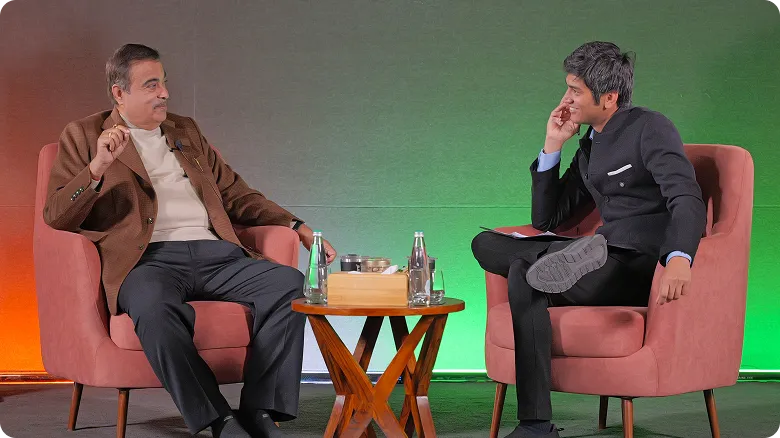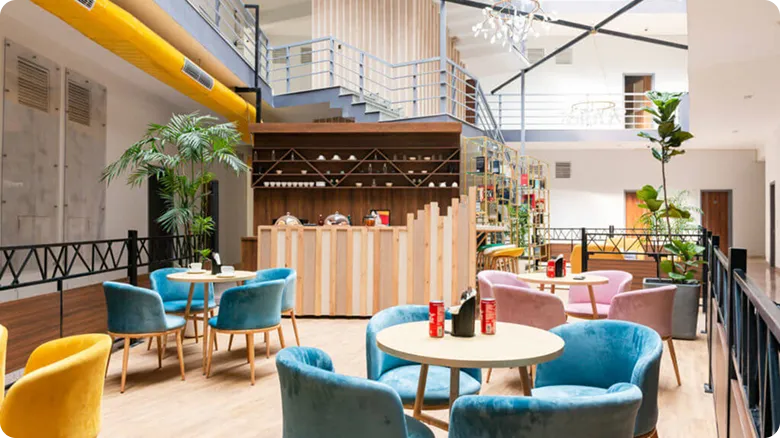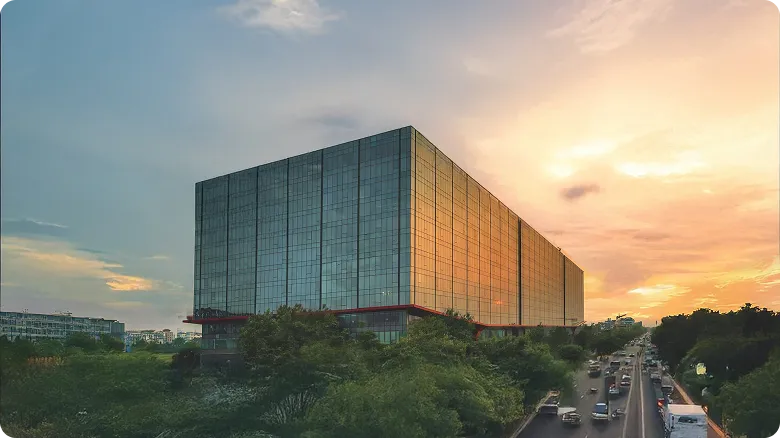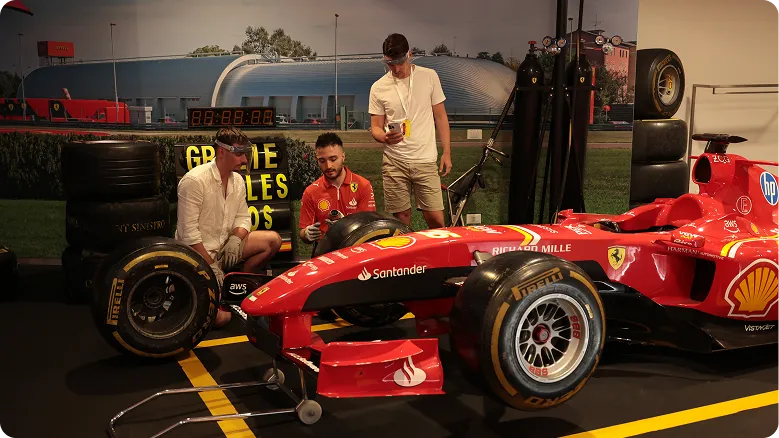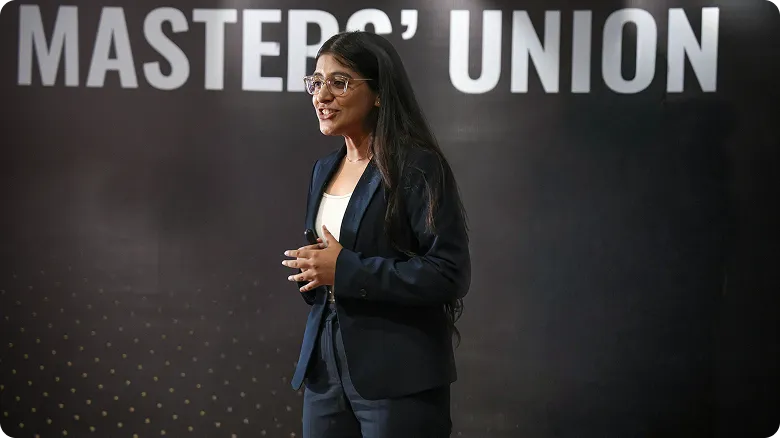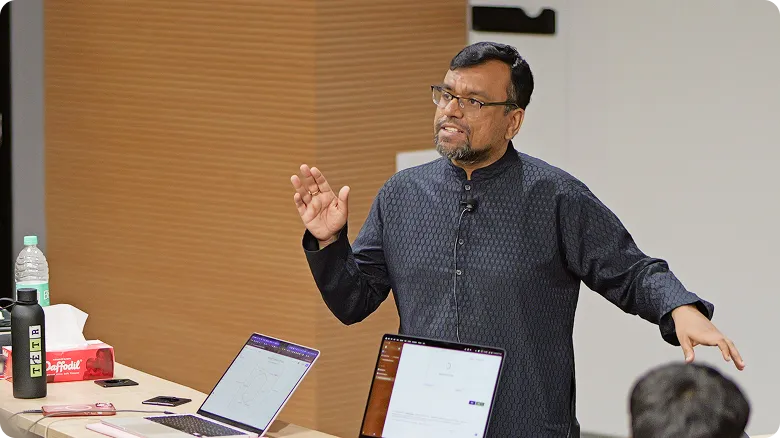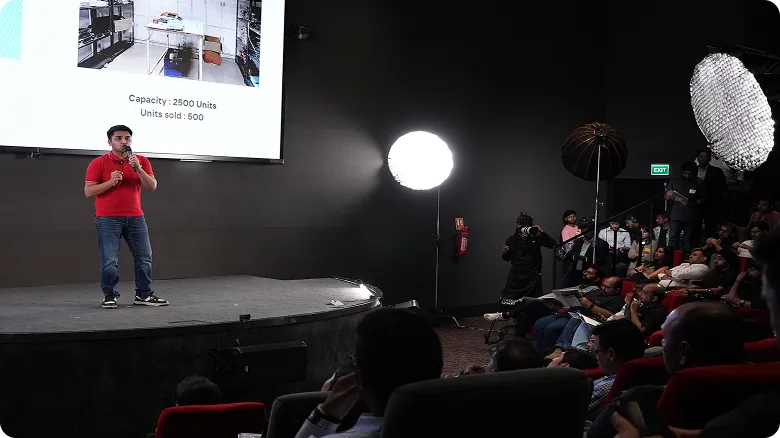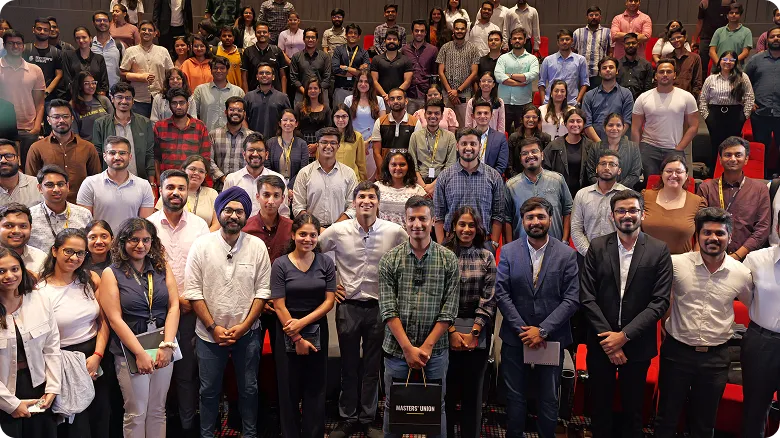Undergraduate
Undergraduate (Global)
Postgraduate
PGP in Technology and Business Management
PGP in Technology & Business Management
(Young Leaders Cohort)
PGP in Human Resources & Organisation Strategy
PGP in Sports Management & Gaming
PGP in Applied AI & Agentic Systems
PGP in UI/UX & Product Design
PGP in Sustainability & Business Management
PGP Bharat
Executive
Family Business
Careers
Innovations
Faculty
MU Ventures
Enterprise Education
Student Life
Jobs
Become a Master
events
For Companies
Blog
Business
A Day of 0 Sales in Pizza Hut: Vikrant Vohra Shares Insights
February 4, 2025
.jpg)
What happens when an industry built on dine-in experiences faces an overnight shutdown? For Vikrant Vohra, CEO of Pizza Hut - Sapphire Foods India, the pandemic wasn’t just a challenge — it was a defining moment.
In a candid session at Masters’ Union, Vikrant Vohra shared how Pizza Hut navigated a day of zero sales and turned it into a blueprint for long-term success. From shifting to a delivery-first model to rebuilding consumer trust and fostering innovation in the post-pandemic world, Vohra sheds light on the importance of strategic positioning for long-term success.
Want to watch the video instead?
Watch the podcast to hear from Vikrant Vohra as he discusses the brand’s future and its commitment to sustainable growth and corporate responsibility.
The big pivot: From dine-in to food delivery
When the pandemic hit, the food service industry faced one of its most significant challenges. For Pizza Hut, a company known for its dine-in experience, the priority shifted to delivery.
This pivot was essential for the brand’s survival. “We had to adapt swiftly,” Vohra explains, as consumer behaviour changed overnight. However, even as dine-in traffic gradually recovered to 80% of pre-pandemic levels, it became evident that the shift towards online ordering was here to stay.
As consumers increasingly embraced the convenience of delivery, Vohra recognised the necessity for an omni-channel approach. The company adjusted its focus to cater not only to dine-in customers but also to those preferring takeaway and delivery services.
Why trust, transparency, and employee morale matters
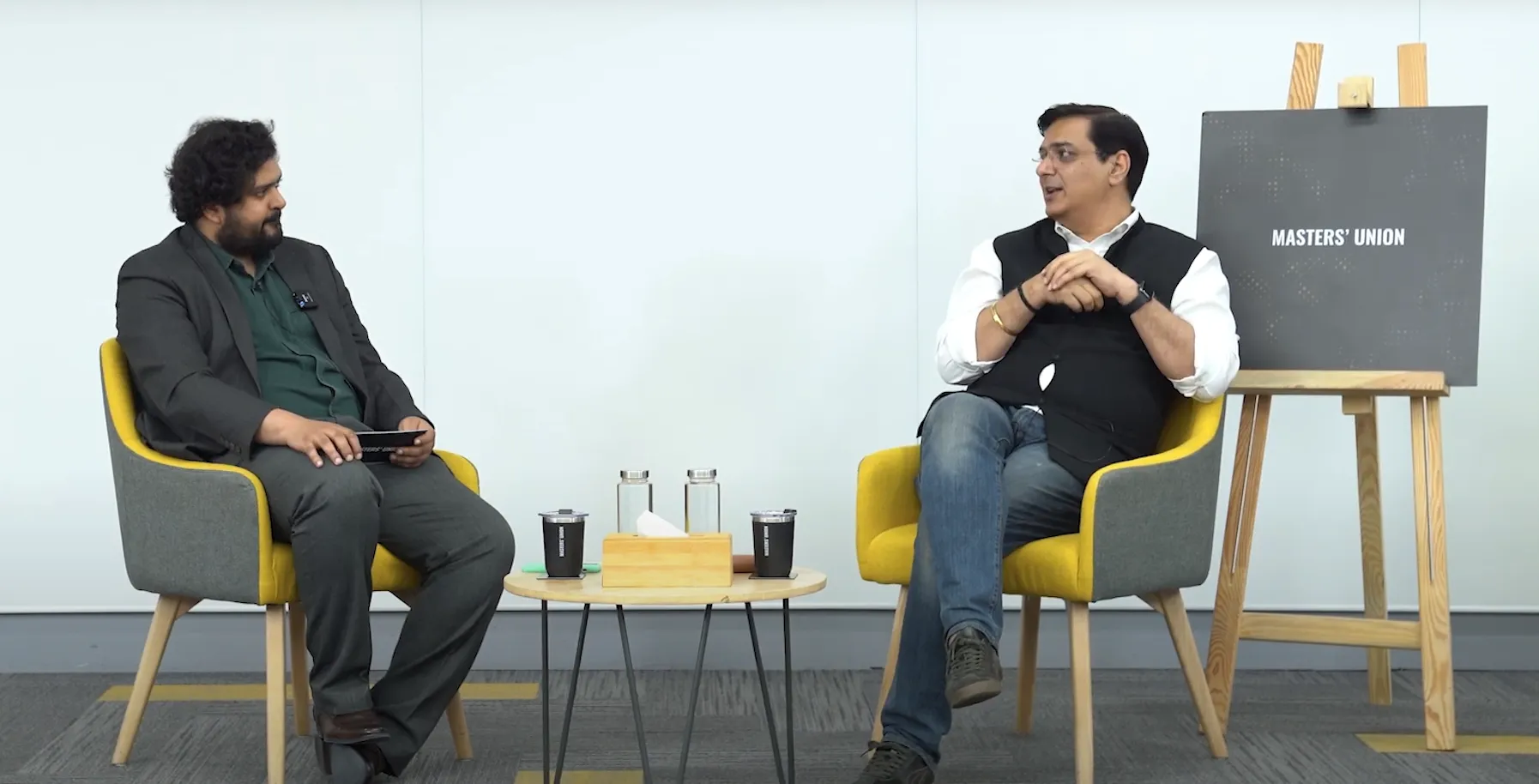
Pizza Hut’s recovery was also deeply rooted in building trust — both with consumers and employees. Vohra highlights the role of trust as “the new currency” for businesses in the post-pandemic era.
Pizza Hut launched a campaign focused on safety, transparency, and consumer confidence, which became crucial for maintaining a loyal customer base. "It wasn’t just about marketing; it was about authentic execution," he says. Ensuring that employees felt safe and valued created a strong internal culture of trust, leading to better service and enhanced consumer satisfaction.
Building this trust internally also meant prioritising employee morale.
In a high-pressure industry where service quality directly impacts the customer experience, ensuring that staff felt supported was key. “If your employees are happy and confident, that energy flows directly to the customer,” says Vohra, highlighting the profound connection between employee satisfaction and customer loyalty.
Innovation is the secret to staying competitive
Staying relevant in the competitive food service industry requires constant innovation, and Pizza Hut is not falling behind.
Vohra describes how product development at Sapphire is driven by extensive consumer research, enabling the company to introduce innovative and regionally relevant menu items. For example, spicier variations of pizzas and localized flavours were introduced to cater to diverse Indian tastes. These innovations help the brand maintain its appeal while staying true to its core product values.
The company’s ability to adapt to the changing tastes and preferences of its customers — while maintaining the high-quality experience that is the hallmark of the Pizza Hut — is crucial in an era where consumers are seeking new, exciting culinary experiences.
Committing to sustainability and diversity with CSR
Vohra also touches on Pizza Hut’s commitment to corporate social responsibility.
The pandemic highlighted the importance of sustainability and the company is embracing a series of initiatives aimed at reducing plastic usage, promoting traceable ingredients, and fostering diversity within the workforce.
This aligns with the growing consumer demand for brands to act responsibly. “Sustainability and diversity aren’t just buzzwords; they are integral to the way we operate,” Vohra asserts.
As part of this commitment, Pizza Hut is working toward being the first quick-service restaurant (QSR) chain in India to be listed on the ESG (Environmental, Social, and Governance) index, setting an industry benchmark for responsible business practices.
Looking to the future: Sustainable growth and new ventures
Pizza Hut has set its sights on significant growth, aiming to double its size in the next two years. This ambitious goal is not just about expanding the reach of its existing brands but also about exploring new ventures and innovative business models.
Vohra’s vision for the future includes balancing short-term pressures with long-term strategies, ensuring that growth remains sustainable and aligned with the values that have shaped the company’s success.







